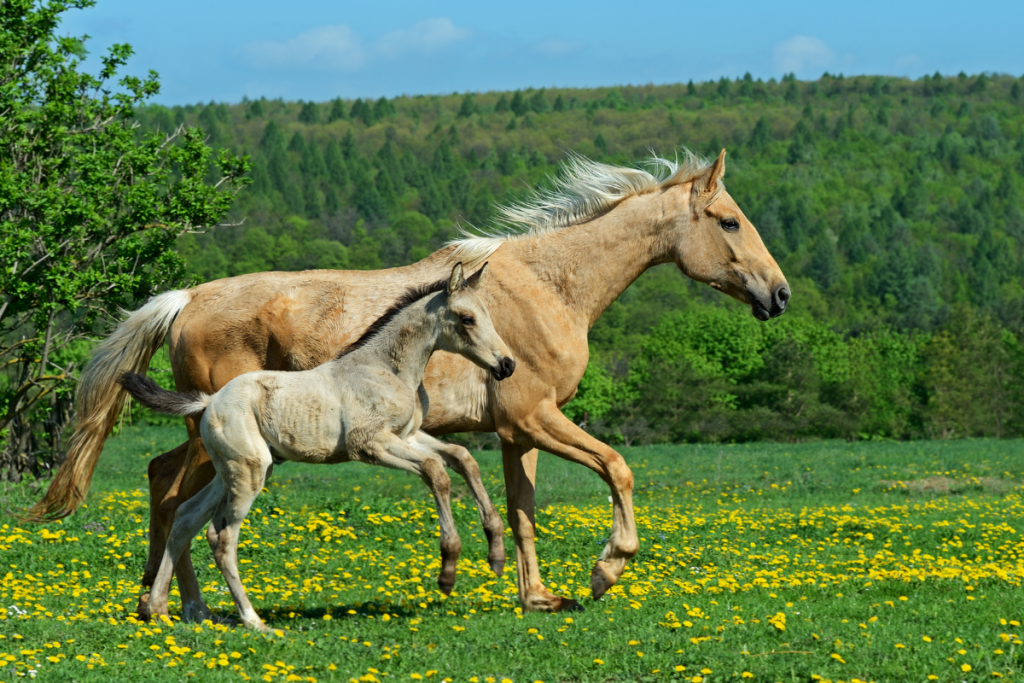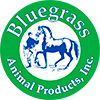Equine, Uncategorized
Protect Against Foal Diarrhea
 Foal diarrhea is a common problem seen at horse farms. Lactobacillus reuteri, a bacterium in the lactobacillus group, has shown positive activity against the four most common organisms causing foal diarrhea; Clostridium difficile, E. Coli, Salmonella and Rota virus. Malabsorptive and secretory are the two main types of diarrhea. Malabsorptive, or the inability of the intestinal tract to reabsorb water and nutrients; and secretory or hypersecretion of both water and electrolytes into the intestinal tract. Typically, you will see secretory diarrhea with bacteria such as salmonella and clostridium; while viruses such as rotavirus show malabsorptive diarrhea.
Foal diarrhea is a common problem seen at horse farms. Lactobacillus reuteri, a bacterium in the lactobacillus group, has shown positive activity against the four most common organisms causing foal diarrhea; Clostridium difficile, E. Coli, Salmonella and Rota virus. Malabsorptive and secretory are the two main types of diarrhea. Malabsorptive, or the inability of the intestinal tract to reabsorb water and nutrients; and secretory or hypersecretion of both water and electrolytes into the intestinal tract. Typically, you will see secretory diarrhea with bacteria such as salmonella and clostridium; while viruses such as rotavirus show malabsorptive diarrhea.
Lactobacillus reuteri is helpful in both preventing and treating both of the common types of diarrhea that come from the 4 common diarrhea causing organisms. Lactobacillus reuteri and saccharomyces boulardii found in Equiotic Foal & Mare, Equiotic packets, Equiotic paste, and Equiotic Boost Paste are a good preventative or, if not given preventatively, a first line of defense for your foal. We recommend starting mares on Equiotic Foal & Mare during the last month of gestation and continuing to give it to both mare and foal post-partum.
Rota virus causes diarrhea by infecting the lining of the small intestine, leading to inflammation and damage to the cells that absorb water and nutrients. This disruption impairs the intestine’s ability to properly absorb water and results in watery diarrhea. Additionally, Rota virus triggers the release of substances that further increase fluid secretion into the intestine exacerbating the diarrhea further.
A study regarding rotavirus in children found a significant positive influence in treatment groups. This prospective study found that children given human Lr were less severely affected and recovered more quickly than the group not given lr.
Salmonella bacteria causes diarrhea adhere to and enter the cells of the intestinal epithelium, releasing toxins that cause diarrhea by invading the cells lining the intestine, leading to severe inflammation and additional cell damage. This inflammation disrupts the normal absorption of water and nutrients in the intestine, resulting in watery diarrhea. When cell damage is severe, salmonella toxins can be absorbed into the bloodstream resulting in a severe systemic inflammation. A bacteremia/septicemia (invasion of live bacteria into the blood stream and/or body fluids and tissues) can be a potentially deadly result of salmonella infection.
A study using L. Reuteri cultured from the gastrointestinal tract of a horse inhibited the growth of salmonella. The mechanism of action is through the secretion of a metabolite ‘reuterin” which in adequate concentrations kills gram negative pathogens such as salmonella. In addition Lr is important to the production of the mucous layer which is an important GI defense mechanism and prevents the attachment of pathogens to the mucosal epithelium through competitive exclusion.
Escherichia coli (E.Coli) bacteria produce powerful toxins that, similar to the other bacterial toxins mentioned here, damage the epithelial cells of the gastrointestinal tract. Additionally, certain strains of E. coli, such as enterotoxigenic E. coli (ETEC), produce toxins that directly stimulate the secretion of fluids into the intestine, leading to watery diarrhea. In severe cases, E. coli infection can also cause bloody diarrhea due to damage of the intestinal lining.
Horses supplemented with L. Reuteri had the potential to alleviate E. Coli induced diarrhea. The mechanism was through repair of tight junctions between inflamed gastrointestinal cells and by restoring the expression of inflammatory factors reducing colonic inflammatory changes. In addition, Lr increased the level of beneficial bacteria
Clostridium difficile produces intestinal inflammation, water and electrolyte loss. This organism can lie dormant in the environment for extended periods of time in a spore form. The organism can proliferate in the colon when the normal flora has been compromised, such as after antibiotic use. A study found that Lr inhibited the adhesion of C. Difficile to equine mucosal cells and completely excluded C. Difficile from the equine gastrointestinal
In conclusion, Lr influences the 4 major pathogens of foal diarrhea. Would we not want to insure its presence in the gastrointestinal tract of the newborn foal, growing foal and throughout life. Elimination of or reduced severity of gastrointestinal disease is financial beneficial in cost savings and in production of a healthier more robust individual.
References:
Dicks, L.M.T., Botha, M., Loos, B. et al. Adhesion of Lactobacillus reuteri strain Lr1 to equine epithelial cells and competitive exclusion of Clostridium difficile from the gastro-intestinal tract of horses. Ann Microbiol 65, 1087–1096 (2015). https://doi.org/10.1007/s13213-014-0954-4 – https://annalsmicrobiology.biomedcentral.com/articles/10.1007/s13213-014-0954-4#citeas
Bernard, William V., Manu Sebastian, and Bruce Hemming. “Salmonella antimicrobial activity of selected strains of enterolactobacillus species isolated from the gastrointestinal tract of the horse.” Journal of Equine Veterinary Science 31.7 (2011): 396-399. https://bluegrassanimalproducts.com/wp-content/uploads/salmonella-antimicrobial-activity-of-selected-strains-of-enterolactobacillus-species-isolated-from-the-gastrointestinal-tract-of-the-horse.pdf
Shornikova, Aino-Vieno; Casas, Ivan A.*; Isolauri, Erika; Mykkänen, Hannu†; Vesikari, Timo. Lactobacillus reuteri as a Therapeutic Agent in Acute Diarrhea in Young Children. Journal of Pediatric Gastroenterology & Nutrition 24(4):p 399-404, April 1997. https://journals.lww.com/jpgn/fulltext/1997/04000/lactobacillus_reuteri_as_a_therapeutic_agent_in.8.aspx
Walsham ADS, MacKenzie DA, Cook V, Wemyss-Holden S, Hews CL, Juge N and Schüller S (2016) Lactobacillus reuteri Inhibition of Enteropathogenic Escherichia coli Adherence to Human Intestinal Epithelium. Front. Microbiol. 7:244. doi: 10.3389/fmicb.2016.00244 https://www.frontiersin.org/journals/microbiology/articles/10.3389/fmicb.2016.00244/full
Dongjing Wang, Jiangyong Zeng, Cuomu Wujin, Qudrat Ullah, Zhonghua Su,Lactobacillus reuteri derived from horse alleviates Escherichia coli-induced diarrhea by modulating gut microbiota, Microbial Pathogenesis, Volume 188, 2024, 106541,ISSN 0882-4010, https://doi.org/10.1016/j.micpath.2024.106541
